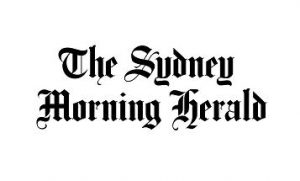
Victoria’s gas companies have declared there is no shortage of local reserves to fill impending shortfalls, contradicting state Energy Minister Lily D’Ambrosio’s warning that supplies are dwindling.
The Australian Energy Market Operator warned in March that gas demand in Victoria, NSW and South Australia could outstrip supply on days of extreme winter weather by 2025 and there could be annual shortages by 2028 unless more supplies were made available.
During a state budget estimates hearing on Thursday last week, D’Ambrosio was emphatic that the state, where more than 2 million homes and businesses still use gas, could not supply its future gas needs.
But gas producers say there is enough supply in the pipeline to avoid long-term shortfalls for decades, while blaming state and federal governments for lengthy delays in project approvals.
The stoush follows warnings from Victorian manufacturers such as tomato processor Kagome that tight gas supply is driving up prices and making their businesses uneconomic, while uncertainty over future supply is an existential threat.
D’Ambrosio said last week she was pursuing policies to reduce gas demand, such as boosting the number of houses switching to electricity, rather than “leaving Victorians stranded on some fairytale notion that there are all these reserves of gas yet to be tapped in Victoria”.
“The evidence and the science tells us … that we do not have sufficient supplies of gas in Victoria to meet our future need,” D’Ambrosio said.
“Any government that fails to accept that or any opposition that fails to accept that … is damned to failure.”
D’Ambrosio’s claim is at odds with the widespread view of the industry, including public companies that are currently supplying gas to Victoria and raising funds to expand onshore and offshore operations.
She has been critical of federal regulations that permit international gas exports from Queensland’s vast onshore fields without requiring a domestic reserve. This forces Australian buyers to compete on price with countries like Japan and Korea that do not produce their own energy.
The only state with a domestic gas reservation policy is Western Australia, which has put aside 15 per cent of gas for domestic use since 2006.
The federal government earlier this month released its future gas strategy, which says new gas projects, import terminals and pipelines will be needed to avert shortfalls in eastern states.
Victoria is the biggest residential gas user in Australia, with homes typically using the fossil fuel for both cooking and heating. In other parts of the country, gas is often used only for cooking.
Bass Strait was traditionally the mainstay of the state’s gas supply, although its fields are being depleted rapidly. However, the industry is adamant that other offshore as well as onshore fields can fill the gap.
Cooper Energy chief executive Jane Norman said the state did not have a gas shortage.
“It has enough gas resources to meet current demand for at least 25 years,” she said.
Cooper Energy produces gas from fields off the Victorian coast, runs processing plants to send gas into the energy network, and is developing several major projects to supply more gas to the state.
Gas exploration company 3D Energi, in partnership with ConocoPhillips, is seeking to develop production fields. Its chief executive Noel Newell said there was no shortage of gas in Victoria, either onshore or offshore, but state and federal regulations were slow and impeded project development.
“The regulatory side of things, both state and federal, is a nightmare. It can take up to six times longer than it should,” he said.
Beach Energy expects to commission its Enterprise project soon. It is located offshore from Victoria and will help replace the diminishing supply from other fields to the Otway Gas Plant at Port Campbell.
Beach Energy chief executive Brett Woods urged state and federal governments, which share jurisdiction over many gas offshore gas projects, to speed up project approvals.
“Beach encourages governments to work together to ensure that approvals are timely and efficient as well as showing leadership to explain the important role of gas in supporting renewables, supporting jobs in existing industries and providing a more affordable and reliable source of energy,” he said.
Victoria lifted its moratorium on conventional gas projects in 2021 but at the same time banned the practice of onshore fracking for gas.
Australian Energy Producers, a lobby group for the gas industry, accused the Victorian government of creating uncertainty that was slowing investment and the development of new projects.
“The state has abundant onshore gas supplies. But they will not be developed until the government provides a policy and regulatory environment that can give confidence to gas companies to invest in exploration and development,” the group’s Victorian director, Peter Kos, said.
D’Ambrosio said on Monday there were no onshore reserves rated at least a “probable” resource with more than a 50 per cent likelihood of commercial extraction, while offshore fields were small compared to the drop-off in Bass Strait.
“There is no ban on bringing new gas online in Victoria – there are currently 14 gas exploration permits active – but these searches have only found relatively small volumes compared to the decline in production,” she said.















